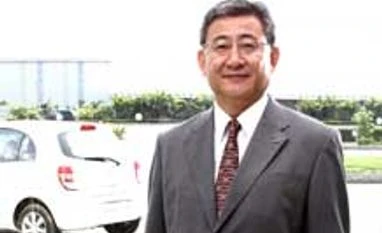How was the last year for Nissan and what were the challenges the company faced?
We reported 11 per cent increase in sales at 36,975 units in the domestic market in 2012-13, against 33,270 units in 2011-12. Rise in input costs, disparity between petrol and diesel prices, and low market sentiments were some of the challenges that Nissan faced.
Are customers preferring diesel cars due to frequent petrol price hikes?
We are conscious of the fact that there is a shift in buyers’ preference towards diesel cars in India as a result of the increasing price difference between petrol and diesel. Such price hikes are bound to happen, as the government is looking at new reforms to counter the fiscal deficit. However, we are very upbeat about the market growth in India. We will be focused on bringing in mobility solutions that are more in demand by our customers.
Sources stated that Nissan is planning to expand capacity. What is the trigger and how many launches can we expect in the next three years?
The Chennai facility hasn't been utilised completely and we have scope to expand the capacity to a maximum of 480,000 units, which we’ll reach by the next year. Nissan aims to be a major player in the Indian market with 10 per cent share of the market by 2016 and 10 new models in different segments will be introduced.
Sunny CVT was launched in the first quarter and Micra CVT and the Compact SUV as in 2013. We will also be launching the first product under the Datsun brand in India this year. The year looks exciting with the line-up of these products. Our expansion plans will be in line with this strategy. In spite of the volatile market trend, India continues to be a huge market. Currently, India has 18 vehicles for every 1,000 people, while mature markets have 600 vehicles for 1,000 people. So, the growth potential is huge.
You said Datsun will come to India this year. How many models are you planning? Will they have different dealers? What kind of localisation will they have?
Currently, Nissan Micra and Evalia localisation level is around 80-90 per cent. Datsun products will be engineered and manufactured locally, to ensure maximum customer satisfaction, but styling and technological assurance is done from Japan as a global OEM brand.
The majority of the parts will be sourced locally to ensure accessibility in terms of price point, supply, local expertise and taste. Localisation ratio doesn’t bring any value to the customer. Frugal engineering definitely helps in achieving the cost objectives of a manufacturer but this can’t be the sole driver. The driver for Datsun is customer needs and whatever the brief, we will translate it using frugal engineering. We will be launching two models of Datsun by FY16. For quick expansion, we plan to mostly have common investors with Nissan, but with specific Datsun brand, retail environment and exclusive dealers will be set up depending on the demand level of each region.
Would the expansion require additional investment?
We have already invested heavily in India in the past few years. However, we have no further details to share at this point of time regarding additional investment.
We’ve heard Nissan-Renault is to stop product-sharing. What is the idea behind it?
The goal of the Renault-Nissan Alliance is to increase efficiencies across the two companies that sell more than seven million cars a year in nearly 200 countries worldwide. Some of the biggest efficiencies come from platform and component sharing, which we have been working on with light-commercial vehicles and passenger cars for more than a decade.
However, we only move forward with platform and component-sharing projects when it promotes brand integrity and customer satisfaction. We have applied this as an initial strategy in India to attain cost efficiency.
How are exports doing?
Our primary focus is to become a major player in the Indian market. At the same time, we will continue to explore opportunities to widen the export base for India-built cars. Nissan exported 200,000 vehicles in last two years.
Recently, Nissan decided to recall Micra. Does it mean made-in-India products are losing its quality?
This is a voluntary recall campaign by Nissan. In this instance, our ongoing quality monitoring processes identified a potential concern at one of our suppliers. And working together, we have moved quickly to correct the situation.
How is your light commercial vehicle (LCV) project coming up? How many products are in pipeline?
In May 2008, we announced three joint ventures with Ashok Leyland: one for vehicle assembly; one for engine assembly; and one for vehicle development representing a total investment of Rs 2,371.4 crore.
Three products will result from this joint venture: firstly an AL (Ashok Leyland) badged LCV Dost - a 1.5-tonne truck - went into production at AL’s Hosur plant in July 2011. Secondly, a Nissan-badged vehicle, Evalia, which has entered production at Chennai in 2012, and the third vehicle will be the AL-badged Stile MPV (multi-purpose vehicle), which will be launched in 2013.
)